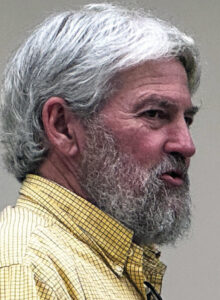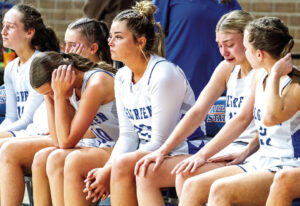Without newspapers, transparency declines
Two recent studies looked at the process of submitting public records and FOIA requests, including how news deserts correlate to poor compliance.
David Cuillier, Ph.D. — a former newspaper reporter and editor — is the director of the Brechner Center for the Advancement of the First Amendment at the University of Florida’s College of Journalism and Communications.
“Our mission is to improve transparency across the country,” Cuillier explained. “We not only do research, but we provide training for journalists. We train about 3,000 journalists a year.” The Center also co-hosts an annual “Sunshine Week” conference in Washington, D.C., attended by journalists, government custodians, historians, librarians, lawyers and citizens interested in freedom of information.
This year, Cuillier co-authored “Dark Deserts” with Brett Posner-Ferdman, a law student at Penn State University, who was interested in studying each state’s record on FOIA fulfillment — and in relation to the growing number of news deserts identified in Medill’s “The State of Local News Project.”
Their abstract explained the findings: “Analyses indicate that, on average, states with a lower density of newspapers demonstrate worse compliance with public record laws. Also, states with financially weak press associations demonstrate less transparent government.”
“I don’t think we should just do research to back up our hunches. I think we should challenge our hunches. Of course, I always felt newspapers have made a difference and that, when newspapers go away, governments run amok and are emboldened to hide information,” Cuillier said. “So, I wasn’t surprised to see that, indeed, when newspapers go away, state agencies are more likely to violate publicrecord laws.
“These initial studies show that newspapers make a difference. They hold governments accountable, especially to budgets,” Cuillier added. “Local governments are more likely to be careful with our tax dollars and less wasteful. Engagement improves. Voting turnout improves.
“Newspapers matter in saving democracy.”
Cuillier cited examples of how the public’s access to information is being impeded: barring journalists from covering public officials and public events; libel suits as retribution; broadcast licenses being threatened; and the defunding of public media, to name just a few.
“There are huge things going on right now that we haven’t seen before. The closing of the White House visitor logs has effectively turned the White House into a secret palace. They’ve removed websites and data, purged the National Archives and fired the archivist. They fired the director of the Office of Information Policy at the Department of Justice and slashed FOIA staff. The list goes on and on,” Cuillier said.
The Brechner Center also studied the experience of filing an FOIA request, surveying 330 U.S. public record requesters. “Hometown Transparency: Differences in Local, State, and Federal Freedom of Information Services” was co-authored by Cuillier, A. Jay Wagner and Jessica Sparks.
“[Local and state governments] don’t often take it seriously, and they use copy fees as a way to get journalists to go away. … They can be rude to journalists and others, and they throw up all sorts of crazy exemptions — particularly privacy exemptions — to hide information,” Cuillier reported. “We’ve seen this all across the country for decades, and it’s getting worse every year.”
Gretchen A. Peck is a contributing editor to Editor & Publisher. She’s reported for E&P since 2010 and welcomes comments at gretchenapeck@ gmail.com.







